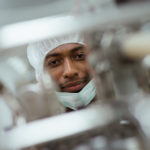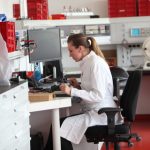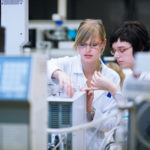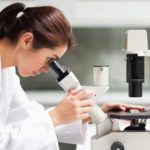
Improving the recognition and treatment of sepsis in hospital
Early recognition and treatment of sepsis, a life threatening reaction to infection, can save lives. Bangor University reports new research by Eirian Edwards and Lorelei Jones, from its School of Medical and Health Sciences, looked at sepsis knowledge, skills and attitudes of ward nurses and whether sepsis training for ward nurses can improve care. While … Continue reading Improving the recognition and treatment of sepsis in hospital

Investment in students is the next step to a North Wales medical school
The Welsh Government has announced more medical students will spend all of their training in North Wales as part of moves towards establishing a medical school there. In a written statement, Eluned Morgan, Minister for Health and Social Services, said “I would like to thank Professor Elizabeth Treasure, chair of the North Wales Medical School … Continue reading Investment in students is the next step to a North Wales medical school

New regional health economics network for North Wales
A new regional health economics network is being launched by Professor Rhiannon Tudor Edwards of Bangor University. The Public Health and Prevention Economics Research Group network will link researchers working in the economics of public health and preventative interventions across Bangor University and Betsi Cadwaladr University Health Board (BCUHB). As the UK emerges from the … Continue reading New regional health economics network for North Wales

Children living with someone who has mental health issues are 63% more likely to experience similar difficulties
The risk of children developing mental ill health increases significantly when they have lived with someone who also has a common mental health disorder, according to new research from Cardiff University. The study showed children who had grown up living with someone with mental health difficulties were 63% more likely to experience any mental health … Continue reading Children living with someone who has mental health issues are 63% more likely to experience similar difficulties

Waste water signals local Covid-19 spikes
A pilot programme monitoring coronavirus in Wales’ sewage systems is finding that virus spikes in the community can be detected in local waste water. The Welsh Government says the programme, launched in June, is now monitoring twenty sites across Wales and covers 80% of the Welsh population. Researchers from Welsh universities were the first to … Continue reading Waste water signals local Covid-19 spikes

Crab shells could protect NHS staff from coronavirus
A material derived from waste crab shells is being tested for use as a virucide for use on PPE and other medical devices. Bangor University reports its experts are working Pwllheli based Pennotec (Pennog Limited) to develop a unique coating which has long lasting virus destroying properties. The BBC reports the crab shells providing the … Continue reading Crab shells could protect NHS staff from coronavirus

Snake venom did not evolve for self-defence
It’s estimated that every year, over one hundred thousand human deaths can be attributed to snakebite from the world’s seven hundred venomous snake species, all inflicted in self-defence when the snakes feel threatened by encroaching humans. However, Swansea University reports new research by its experts and colleagues from Bangor University has concluded snake venom didn’t … Continue reading Snake venom did not evolve for self-defence

Music bringing comfort to Welsh speakers with dementia
Welsh speakers living with dementia can now enjoy songs from their past in Welsh, thanks to a Bangor University and Merched y Wawr initiative supported by the Welsh Government to help caregivers across Wales improve their quality of life. Music is said to help soothe, stimulate and bring to mind long forgotten memories. As part … Continue reading Music bringing comfort to Welsh speakers with dementia

Funding to develop next generation of AI leaders
Swansea University has been awarded funding from the UK Government to create one of sixteen new Centres for Doctoral Training (CDTs) in Artificial Intelligence. It is part of a £100m investment by UK Research and Innovation (UKRI) aimed at enabling a new generation of PhD students to use AI technology to improve healthcare, tackle climate … Continue reading Funding to develop next generation of AI leaders

Researchers assess the value of dementia support groups
New ageing and dementia research, led by University College London, centres around people living with rare dementias, and will involve the first major study of the value of support groups for people living with or caring for someone with a rare form of dementia. Bangor University reports a team from the Bangor Institute of Health … Continue reading Researchers assess the value of dementia support groups








